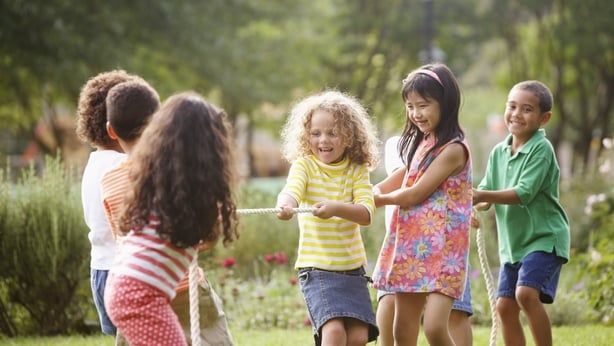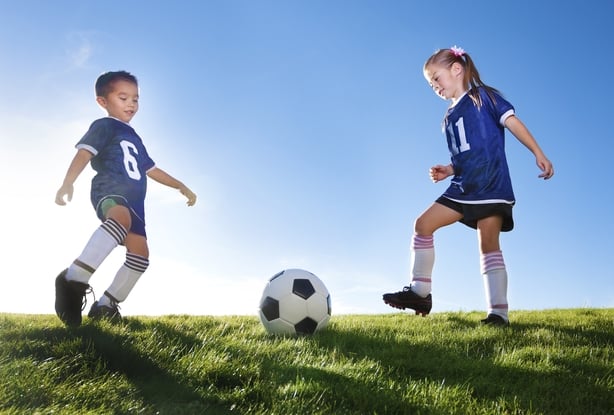As the weather begins to change and there is definitely a crisper feeling to the air, now is the perfect time to try out a new sport.
Dillon Lynch, our outdoor adventurer, loves hiking but is also an avid Karate Kid, being a member of Kildorrery Karate Club. This week's challenge from Dillon is to try out a new sport.
Exercise and physical activity is so important for children. It helps with a child’s well-being, their health and learning. When a child really engages with a sport, they learn life skills that will literally last their lifetime, skills such as a discipline, teamwork, motivation, commitment and working well with others.

If you think about how a child learns from an early age, they interact using play and physical touch. They learn by running away from you, how many times have you had to run after a toddler? While not considered sport, it is play and exercise and our children are naturally conditioned to learn in this way.
When a child has a friend over, chances are they outside running around, jumping on a trampoline, climbing ladders or seeing how high they can go on a swing. All these activities help with a child's growth.
So how, if there are so many benefits, as parents, do we get a child into sport that maybe isn’t very "sporty"? Start off by thinking that every child is sporty, some have more natural talent and are able to bend a ball like Beckham whereas some children have to work a bit more at skills.

Make it Fun
The thing is to make it fun. Find a sport that your child thinks is fun. What sport does a lot of their friends do? Children love to spend time with their friends so if they see a sport where all their friends go, then it becomes a fun time to go.
Lead by Example
Another way is to lead by example. If your child sees you out running the roads of your local park, playing 5-a-side football, hitting the gym or playing tennis, then they will see exercise as just a part of life.
Children are like sponges, they literally soak up more than we think by their curiosity and their watching of the world. As parents, we are the first teachers of our children. If they see us lounging around all the time, then they may be less inclined to take up a sport or do exercise.
Do sport together
How about doing something together? If you run, then bring your child on a small run with you. If you cycle, bring your child with you on a cycle. Is there a family hour in your gym?
Don’t forget that playing football, basketball, trampolining or any sporting activity out your back garden also counts.
Encourage Behaviour
Above all, encourage behaviour in sport. When you force a child into sport, they’ll resent it without realising it. Let’s face it, nobody - parents or children – like to do chores or something that they feel obliged to do.
Always encourage your child, even if they aren’t the A star on the team. Make it fun for them. Remember nobody likes being bad at things and children are always trying to please. Keep it fun, encourage them by telling them that they did their best and they did great.
As children turn into teenagers, sports can play a more serious role or a non-existent one in their lives. Up to 70% of teenagers drop out of organised sport by the time they are 14. This is an age where teenagers need exercise just as much as when they were younger. Laying foundations of fun, exercise, friendship could help stall this exodus of sport for your child.
There are so many sports to choose from – individual and team. We’re lucky today to have so many sporting organisations operating in our communities. From GAA, Soccer, Gymnastics, Karate, Athletics, Tennis, Skate-boarding, Swimming, Basketball, Cycling and many many more.
Try them out, there’s a sport for every child.
For more information, check out your Challenge Information Sheet. To get your cert at the end of your challenge, visit the TRTÉ website where you'll also find details of sporting organisations in your local area.
*All Dillon’s challenges should take place within current Covid 19 Government guidelines.
